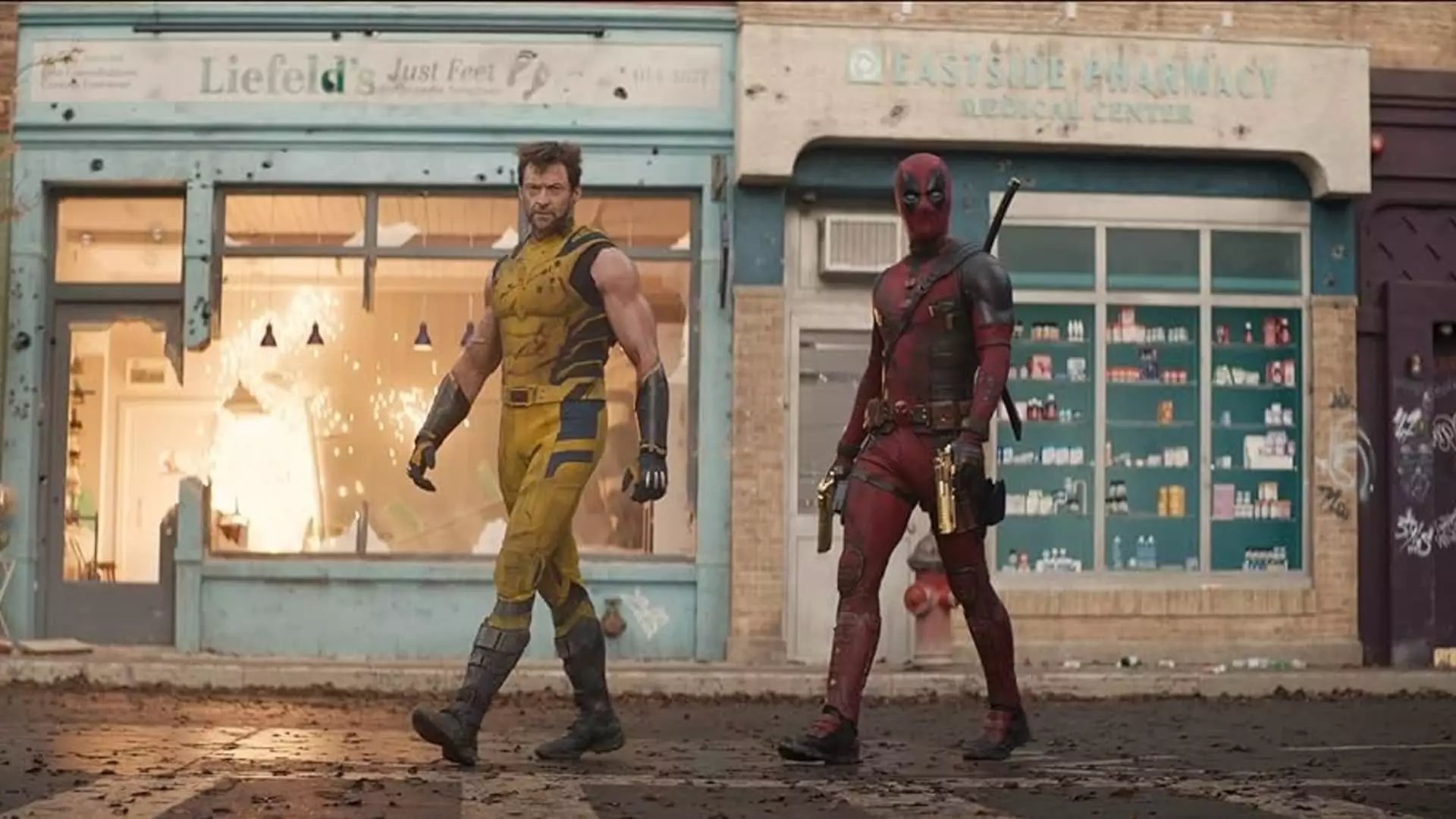The trio of Ryan Reynolds, Hugh Jackman, and Shawn Levy has accomplished what many thought was improbable: creating a box office juggernaut with “Deadpool & Wolverine.” Recently, the film surpassed Warner Bros.’ “Joker” to become the highest-grossing R-rated film of all time. Garnering an impressive $516.8 million domestically and $568.8 million internationally, the global total skyrocketed to over $1.085 billion. This achievement not only highlights the enduring appeal of the Marvel Cinematic Universe (MCU) but also opens the door to a potential shift in creative direction for Disney and Marvel.
The imminent release of a sequel to “Joker” later this October places the context of “Deadpool & Wolverine” within an even broader cinematic landscape. While some films in the MCU had stumbled in recent years, this latest entry demonstrates a resurgence in audience enthusiasm and box office success, establishing that darker narratives can thrive within the MCU framework without alienating mainstream viewers.
Experts like Shawn Robbins, founder of Box Office Theory, have pointed out that the R-rating of “Deadpool & Wolverine” was not merely a marketing strategy but a natural fit for the characters involved. The film’s unapologetic humor and crude references were a vital aspect of its appeal, ensuring that audiences were well-informed about the raw content they could expect. The distinct tone established in this film reassured fans that they were not witnessing a diluted version of the franchise, an important tactic that led to renewed excitement and positive word-of-mouth.
This momentous acceptance of R-rated content by the family-friendly Disney empire signifies that audiences are not averse to nuanced storytelling, even if it incorporates mature themes. It demonstrates a departure from the overly sanitized narrative arcs that have often characterized blockbuster films aimed at broader demographics.
The transition of “Deadpool” from 20th Century Fox to Disney in 2019 raised eyebrows and apprehensions among fans. Would the character, known for his irreverence and penchant for breaking the fourth wall, be tamed under the Disney brand? Fortunately, hope was revived when Marvel Studios head Kevin Feige assured fans in 2021 that the next “Deadpool” installment would retain its hard-earned R-rating.
Additionally, the creative collaboration between Reynolds and Levy has allowed for playful jabs at company executives, franchise tropes, and even pop culture references, such as a spin on the iconic “Frozen” line. This humorous self-awareness is a welcome addition to the MCU and proves that Disney can balance its friendly image with edgier content.
Despite the recent triumph of “Deadpool & Wolverine,” Disney faces a significant balancing act when it comes to future releases. According to analysts, the company must tread carefully as it explores opportunities for more mature films while taking into account its vast family-oriented audience. This film may serve as the first in a series of projects that cater to adult fans, demonstrating a willingness to evolve beyond the traditional superhero formula.
With upcoming titles like “Captain America: Brave New World,” “Thunderbolts,” and “Blade,” Marvel seems poised to reclaim its dominance at the box office. However, the studio is also strategically narrowing its focus from a previously bloated roster of streaming series to prioritize high-quality theatrical releases. This pivot is vital in restoring consumer confidence after “The Marvels” performed poorly at the box office, paving the way for fan engagement at conventions like Comic-Con and D23 to be more impactful.
“Deadpool & Wolverine” has ushered in a sense of optimism for the MCU, reaffirming that the superhero genre remains a vital force in cinema. The film’s accomplishment of breaking box-office records while embracing its R-rating suggests a promising future for more sophisticated storytelling within the franchise. As Marvel navigates upcoming releases, fans can anticipate a more varied slate that respects audience expectations and pays homage to the darker narratives that many have long wished to see. With over $30 billion generated since the release of “Iron Man” in 2008, the MCU’s legacy continues to grow, fueled by innovations that keep it fresh and relevant.


Leave a Reply